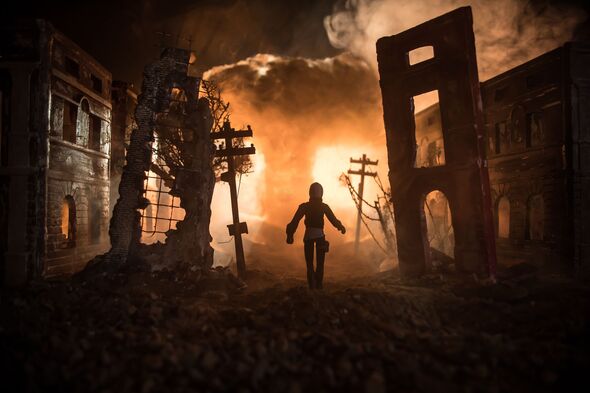
The Films That Capture the True Horror of Nuclear Weapons
Nuclear weapons have long been a source of fear and fascination, with their potential to bring about global destruction. Throughout history, the threat of nuclear Armageddon has loomed large, especially during the Cold War when the United States and the Soviet Union stood on the brink of conflict. Today, several other nations, including Britain, France, and China, possess their own nuclear arsenals, and the risk of a modern-day nuclear launch—whether through malice or miscommunication—continues to inspire a wide range of media.
Oscar-winning director Kathryn Bigelow's latest film, A House of Dynamite, explores the tense moments following the launch of an intercontinental ballistic missile (which may be nuclear) towards the US by an unknown adversary. This film is part of a broader trend in cinema that examines the destructive power of nuclear weapons and the high-stakes game of a "nuclear exchange."
To determine which films best capture the sobering reality of nuclear warfare, experts were consulted, and one movie stood out as particularly impactful.
Threads: A Chilling Depiction of Nuclear War
Dr Mark Hillborne, a senior lecturer in the Defence Studies Department at King’s College London, highlighted the BBC’s 1984 television film Threads as a standout. Despite its limited special effects due to the technology of the time, Threads offers a realistic and bleak portrayal of nuclear war. Set in Yorkshire, the film follows ordinary families as a fictional hot war between the United States and the Soviet Union escalates.
The film's realistic depiction of sirens wailing over Sheffield streets and homes being reduced to rubble by nuclear shockwaves left a lasting impression on viewers. Many who watched it at the time found it deeply traumatic, and it remains a chilling experience even today. One YouTube comment from a viewer who grew up in Sheffield reads: "They made us watch this at school. Basically sh** myself."
Dr Hillborne noted that Threads had a significant impact when it was first broadcast and that watching it recently during heightened nuclear tensions in Russia left him unnerved. He also praised the film for its ability to convey the chaos and horror of nuclear war on ordinary people.
The Day After: A Significant Influence on Public Perception
Another notable film is The Day After, an American TV movie that premiered the year before Threads. Set in Kansas, it depicted a similar scenario of nuclear war. Dr Rhys Crilley, a lecturer in International Relations at Glasgow University, emphasized the importance of these films in shaping public awareness and opinion about nuclear weapons. President Reagan reportedly wrote in his diary that watching The Day After left him "greatly depressed," leading him to commit to serious negotiations for nuclear arms control and reductions with the Soviet Union.
A House of Dynamite: A Modern Take on Nuclear Crisis
Dr Crilley also expressed appreciation for A House of Dynamite, which stars Idris Elba as the US President facing a potentially nuclear attack. While the film is stressful and anxiety-inducing, it effectively highlights the uncertainty, confusion, and miscalculations that can occur during a nuclear crisis. The fast-paced narrative shows how decision-makers have only minutes to act upon an early warning alert, emphasizing the precarious nature of nuclear deterrence.
The film also accurately portrays the limitations of technologies designed to keep people safe, such as early warning sensors and missile defense systems. These systems are not foolproof, and their failures could lead to catastrophic consequences.
Dr Strangelove: A Dark Comedy on Nuclear Paranoia
James Acton, co-director of the Nuclear Policy Program at the Carnegie Endowment for International Peace, chose Dr Strangelove or: How I Learned to Stop Worrying and Love the Bomb (1964) as a film that captures the absurdity and danger of nuclear warfare. This black comedy, starring Peter Sellers in three roles, parodies the paranoia of the Cold War and the incompetence of global leaders.
Acton described the film as a comedy but noted that it perfectly encapsulates the thinking that could lead to a nuclear war. It serves as a reminder of the dangers of unchecked military power and the need for careful diplomacy and restraint.
These films, whether through realism, drama, or dark humor, offer valuable insights into the potential consequences of nuclear weapons and the importance of international cooperation to prevent their use.

Post a Comment